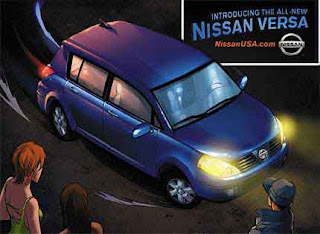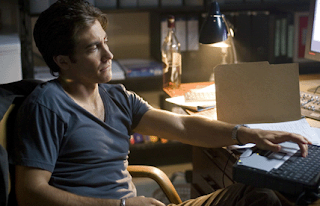Just imagine waking up one morning to discover you have amazing powers which you can neither understand nor control.
Then you are approached by a shadowy individual who claims you are a new breed of man: genetically mutated, living proof of evolution itself. And then, as if that wasn't already enough to deal with, you realize you are being monitored and abducted by an evil company that is trying to protect all the other, non-mutated people.

'Wait a minute,' you say. 'I've seen this one. The bald guy from "Star Trek" in a wheelchair gets into everybody's heads, while Xenia from "Goldeneye" and the jealous magician from "The Prestige" try to stop Gandalf from messing up magnets. And there's a dam or something, I'm not really sure.'
Yes, it sounds like "X-men," doesn't it? In the words of "Heroes"-creator Tim Kring, when asked the same question at an early production meeting: 'Well, it just isn't. So there.'
Nonetheless, just in case you find yourself wondering which show you are watching, I have created a handy 10-step guide.
You are watching NBC's "Heroes" if...
1. You recognize that the acting is mainly crap, but don't care.
OK, Sendhil Ramamurthy and Jack Coleman are decent in their roles as Mohinder Suresh and Noah Bennett. But come on, Ali Larter's take on split-personality manifests in Jessica screaming at herself in the mirror. Greg Grunberg lumbers about as Matt Parkman, and somehow manages to screw up the mind-reading acting even more than Mel Gibson did in "What Women Want."
2. The writers do not respect their audience.
The show's inconsistency is its greatest blunder. The writers seem to forget that audiences are smarter these days, and will probably pick up on major plot holes; or perhaps they don't care.
Tension is never sustained because all interesting story-arcs are immediately axed at the start of the next episode: Mr Bennett takes a bullet to forget his daughter, only to remember it all again because of a note. That girl who can IM with her mind just disappears. Matt Parkman gets shot five times in the chest, only to recover without a scratch.
And come on, you know, deep-down, that Hiro and Ando were definitely in LA at the end of the last episode, carless and powerless, and yet somehow they are now in New York again.

3. You are watching it online (legally!) in what is certainly one of the first of many forays to come by a major network into the digital world, as the big-wigs realize that people want to watch shows for free, when they want, where they want. RIP TV-links.
4. Your main bad guy is a disappointing, whinging emo loser.
Sylar's origin story as Gabriel, the unloved clock repairman, negates virtually all of his character's impact. Casting Malcolm McDowell as the evil villain, and leaving his emotional baggage unexplained, would have been far more effective and scary (and far too much like Magneto).
5. You no longer trust yourself to remember if certain characters have met before. But the writers seem to be oblivious to all previous episodes anyway, so why shouldn't we be. The sheer enormity of the cast makes the show nearly untenable: characters and their subplots disappear for episodes at a time, preventing all understanding of the season's progress so far.
6. Having eyes that turn black and then kill everyone (or put them to sleep or something) now counts as a super-power. Let me remind you that Wolverine had adamantine knives that pierced through his knuckles.

7. You find yourself strangely craving a Nissan.
'Look Ando, Nissan Versa!' / 'Oh Dad, thank you for The Rogue!'
And since when do NYPD patrolmen drive Sentras? Extra points if you can guess the cars that Peter Petrelli and D.L. both drove.
8. Look! We don't know what this is, but it's definitely science stuff!
Why does a high-school lecture about Darwin require Bunsen burners and jars full of colorful chemicals? Not to mention Dr Suresh's sped-up theory of evolution.
9. Characters use their powers only at the most inopportune times.
Why the hell does Claire cut off her toe, stick her hand in boiling water, jump off a platform, etc? Yes, she can regenerate, but it still hurts! And why the hell couldn't Peter just fly into space himself?! And why doesn't Hiro just go back in time and stop himself from saving Kensei's life the first time around? Jeez.
10. Milo Ventimiglia is gasping about being a bomb or something. Every show has its defining moment. I think this one was in the second episode: 'Nathan, don't you get it! I think I can fly!'
Somehow, though, none of this matters. Despite all the talentless writing, atrocious acting, cheesy romances, and dead-end plot developments, I still watch the show, and care about what happens to everybody. Kind of.
And if two-dimensional characterization is what it takes to perpetually keep Hayden Panettiere in a cheerleader's outfit, then so be it.















